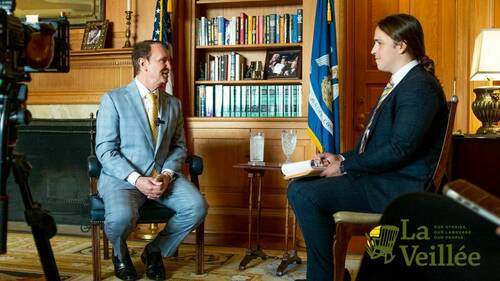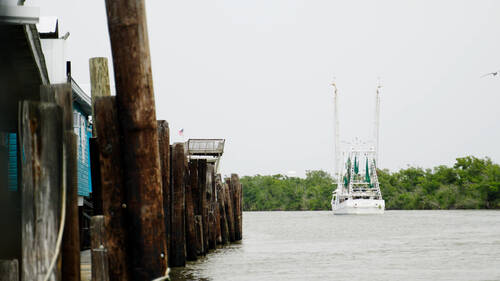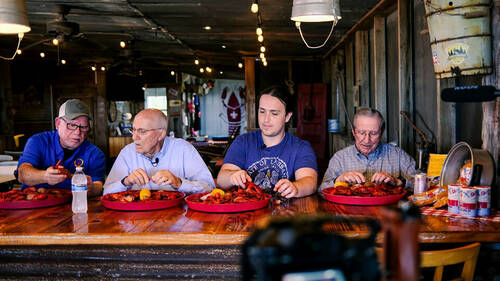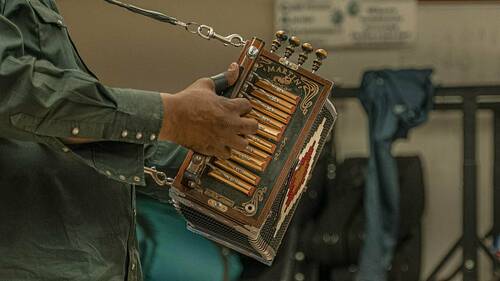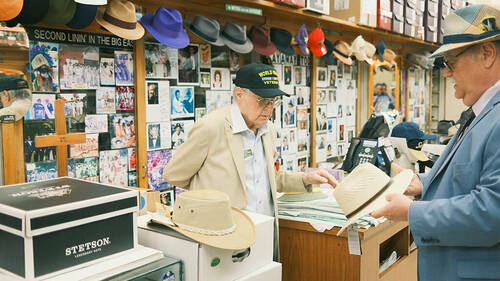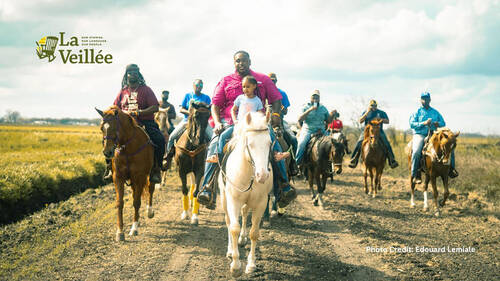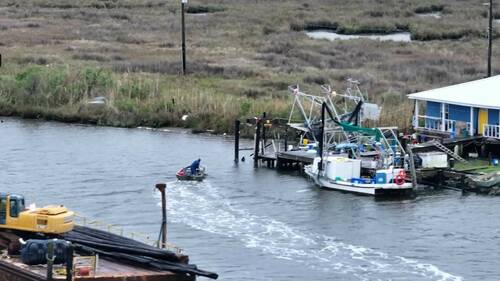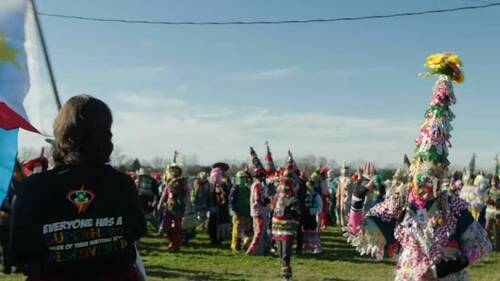Spring 2024
Spring 2024 | La Veillée
A Second Louisiana French Renaissance? | La Veillée
After decades of being formally banned in public education, our state has seen a renewed interest in promoting Louisiana French language and culture. We talk with two francophone legislators and Governor Jeff Landry, who shares what French means to him.
TweetCocodrie : Then and Now | La Veillée
Cocodrie was once a vibrant fishing village inhabited by French-speaking families near the mouth of Bayou Petit Caillou in South Terrebonne Parish. Today, after the loss of land, language, and population, all that remains in Cocodrie are fishing camps and shrimp docks. Yet the spirit of Cocodrie lives on in its people, both up and down the bayou. We talked with two cousins from the Domangue family at Faith Family Shrimp Company in Cocodrie about what life was like growing up here and how things have changed since.
TweetCrawish: A Louisiana Way of Life | La Veillée
Crawfish are a staple in Louisianans' diets and an emblematic symbol of our state's unique culture. This week, we visit Barry Toups at Crawfish Haven in Kaplan to learn how crawfish are farmed and the effect of the drought on this season. After boiling the crawfish for lunch, we interview members of Barry's community on the interrelationship between crawfish, Cajun culture, and the French language over their lifetimes.
TweetLâche Pas: Culture, Music, and Identity through Education | La Veillée
Meet Geno Delafose one of the few native French-speaking Louisiana musicians under the age of 60. A Creole Cowboy by profession, he was raised with music and French in the prairies around Eunice. His grandparents were sharecroppers, and his father was a legendary Zydeco accordionist. To pass his culture on to the next generation, Geno leads workshops on Louisiana music with the Lâche Pas Vermilion program.
TweetThe French Ambassador, Meyer the Hatter, and the Franco-American Alliance | La Veillée
Founded in 1894, Meyer the Hatter is a New Orleans institution, having sold hats to generations of New Orleanians. Interwoven into the story of this renowned hat shop is the Meyer Family and their connection to France. In this episode, we tell the Meyer family story and interview the French Ambassador Laurent Bili during his visit to Louisiana to bestow the Legion of Honor on the family patriarch Samuel Meyer for his heroic service during World War II
TweetFootwork: The Creole Cowboys of Louisiana | La Veillée
Cowboy culture is often heavily associated with the West in the United States, but the French-and-Creole-speaking Black Creoles of Southwest Louisiana have their own long standing cowboy traditions. Télé-Louisiane Creative Director and La Veillée Host Drake LeBlanc just finished a documentary on this rich culture titled "Footwork," supported by the Create Louisiana grant. In this episode, we speak with Drake and some of the other Creole cowboys from his film about the history and customs of Louisiana's Creole cowboys and the importance of keeping this heritage alive today.
TweetGrand Bayou: The Last Indian Village on the Water | La Veillée
The French language in Louisiana is most heavily associated with the Cajun and Creole parishes of Southwest and Central Louisiana, but there are other Francophone communities scattered throughout the State. In this episode, we visited one such community in the far Southeast of the State, near the mouth of the Mississippi in Plaquemines Parish. We learned from residents of the Grand Bayou Indian Village, accessible only by boat, about their unique Indigenous and French roots and their contemporary cultural, environmental, and economic challenges.
TweetCourir de Mardi Gras | La Veillée
Faquetaïque : Un Courir de Mardi Gras pour le Peuple Faquetaïque: A Mardi Gras Courir for the People In the spring premiere of season 2, the team takes viewers to the prairies of St. Landry and Evangeline to experience a different kind of Mardi Gras: the Courir. At a unique Mardi Gras in Faquetaïque Praire founded in 2006 by young Cajun leaders to practice old traditions in a modern and inclusive way, we speak with Courir participants about what the event entails and with a co-founder of the Courir about the event’s cultural significance for his community and Louisiana as a whole.
Tweet

